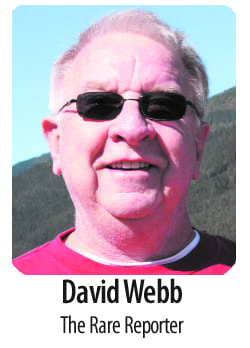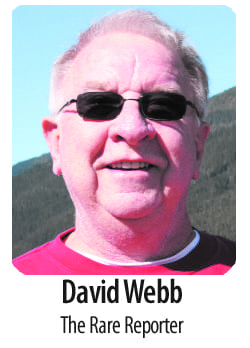President-elect’s words on ‘60 Minutes’ are no guarantee of safety for LGBT people, but we will stand strong
 Supporters of President-elect Donald J. Trump probably reacted with as much shock as did backers of Hillary Rodham Clinton did when she lost the election to the billionaire.
Supporters of President-elect Donald J. Trump probably reacted with as much shock as did backers of Hillary Rodham Clinton did when she lost the election to the billionaire.
The television networks were abuzz Sunday with discussion about why pollsters got it so wrong when they predicted Clinton would win the election, widespread reports of angry protests in the streets of major cities and speculation about who would get top spots in Trump’s Administration. That evening on 60 Minutes, Trump, his wife Melania and four children appeared for a wide-ranging interview about his plans for the Oval Office.
Sunday morning, the media reported that Trump was considering Republican National Committee Chairman Reince Priebus for his chief of staff, and the Trump Transition Campaign confirmed Priebus’ appointment that afternoon. After weeks of promising to “Drain the Swamp” in Washington, D.C., Trump confounded observers by “putting the top alligator in charge” of the administration, as one pundit put it.
Trump also named Stephen Bannon, the arch-conservative chairman of Breitbart News and a white nationalist, as his senior counselor and chief West Wing strategist. Earlier, observers suggested Bannon would be Trump’s choice for chief of staff.
Neither Priebus nor Bannon would be anything other than disastrous picks in the view of LGBT activists, but Bannon could at least be seen as an outsider. Priebus, though, is the ultimate insider in the Republican establishment with whom Trump so virulently quarreled during his primary and election campaigns.
When Trump and his family appeared on 60 Minutes some people surely wondered who had taken over Trump’s body and mouth. The foul-mouthed, crass bully had disappeared to be replaced by someone almost palatable.
Trump, after weeks of bashing the media as dishonest and vindictive, answered interviewer Leslie Stahl’s questions thoughtfully and politely. When she told him his election had sparked bullying in schools and on streets in the name of White Power, Trump said the news saddened him. He even looked directly into the camera and sternly said, “Stop it,” to the bullies.
The shocks kept coming in the interview as Trump backed away from his promise to repeal Obamacare on day one of his presidency. Instead, he said, it would be replaced by something better that ensures all citizens will be insured, and the best parts of Obamacare (no pre-existing conditions denials and extensions of coverage for children to age 26 when they live at home) would be kept in place.
On the subject of the 30-feet-high, 3,000-mile wall being built on the U.S. and Mexico border, Trump said it would in some areas merely be a fence. Despite his many campaign pledges to form a deportation troop and remove all undocumented residents, Trump said the focus would be on criminals only.
The other “terrific people” would probably be accommodated somehow, he hinted.
In a gracious nod to Clinton, Trump even said he wanted to cause no harm to former President Bill Clinton and his wife. He called them “good people,” and he said he would think about his earlier threat to appoint a special prosecutor to “put her in jail” for allegedly lying before Congress about the private server and devices she used for email exchanges.
Trump proclaimed himself to be pro-life, but he said that there would be no assault on abortion rights. If the issue ever came before the U.S. Supreme Court again, the most drastic result would be a return of the issue to the states for consideration.
Finally, he said that marriage equality is already the law of the land, and there would be no impact on the rights of LGBT citizens to marry, he said. Trump even added that he knows many LGBT people.
I suspect that last one blew the socks off of many of Trump’s supporters who propelled him to the top elected office of the nation. Pollsters identified rural Americans without college educations as the group that most likely came out of the woods in larger numbers than expected to vote for him.
Human rights groups disregarded Trump’s softer rhetoric, saying his appointment of Bannon had made a mockery of his pledge to be the president for all Americans.
“Stephen Bannon, a man who led a media empire into becoming what a former Breitbart editor called a cesspool for White Supremacist followers simply has no business in the White House,” said Richard Cohen, president of the Southern Poverty Law Center. Trump’s victory led to an “avalanche of racist and anti-Semitic harassment that plagued the entire presidential campaign,” Coehn said. “White Supremacist websites erupted into celebration on election night he added.
Like everyone else who voted for Clinton, I reacted in shock when I learned Trump would be our next president. I literally took to bed for a couple of days to recover from that harrowing night of election returns.
Trump’s more tolerant stance on 60 Minutes in no way protects the LGBT community from the threat of the conservative cause, but it reminds me of a few important factors. First, no candidate is ever able to deliver on all of the promises they make during a campaign, and second, the situation is never as good or bad as we might anticipate it to be following an election.
Most importantly, I am reminded that we as a community of LGBT people are always at the top of our game in the face of adversity. That’s not going to change, no matter who becomes president.
David Webb is a veteran journalist with more than three decades of experience, including a stint as a staff reporter for Dallas Voice. He now lives on Cedar Creek Lake and writes for publications nationwide.
This article appeared in the Dallas Voice print edition November 18, 2016.

